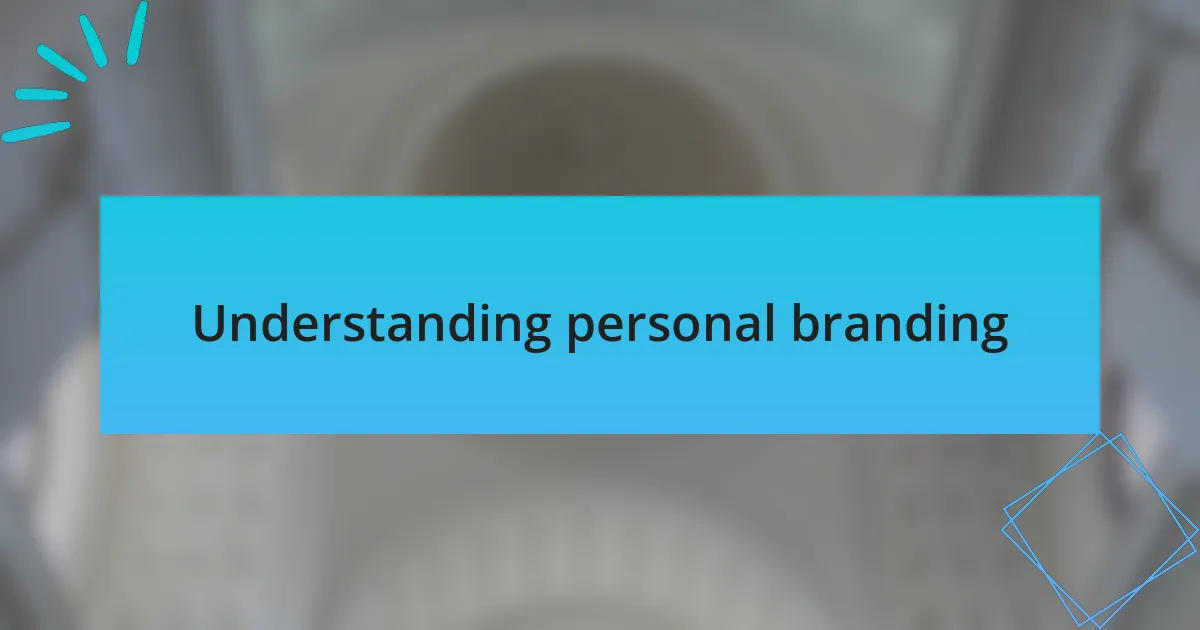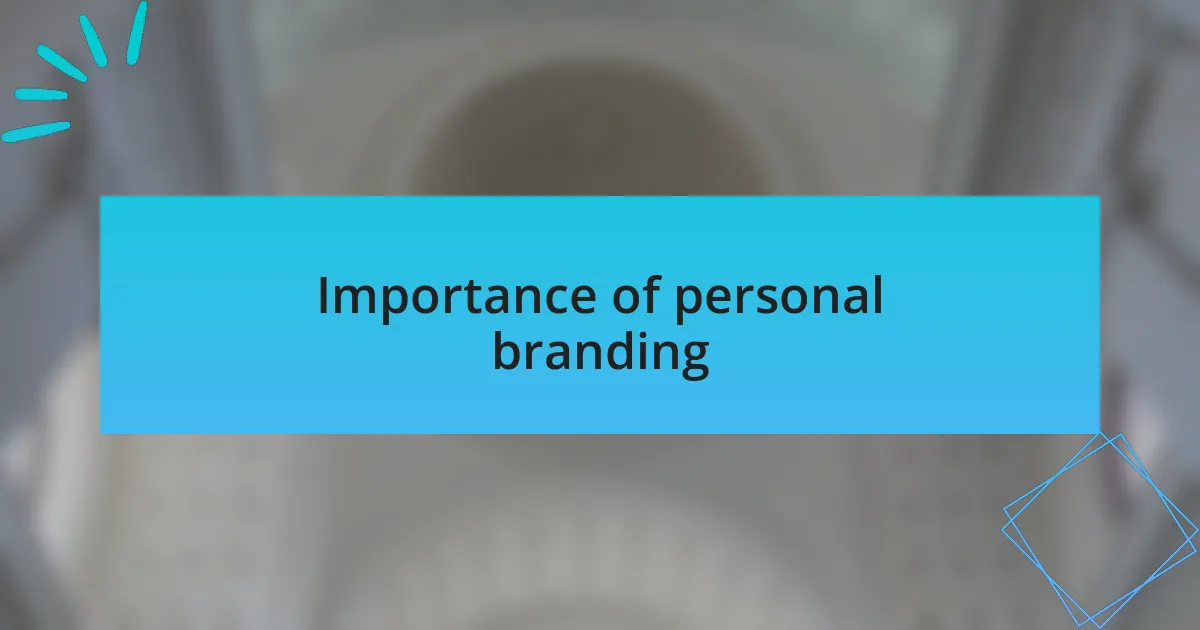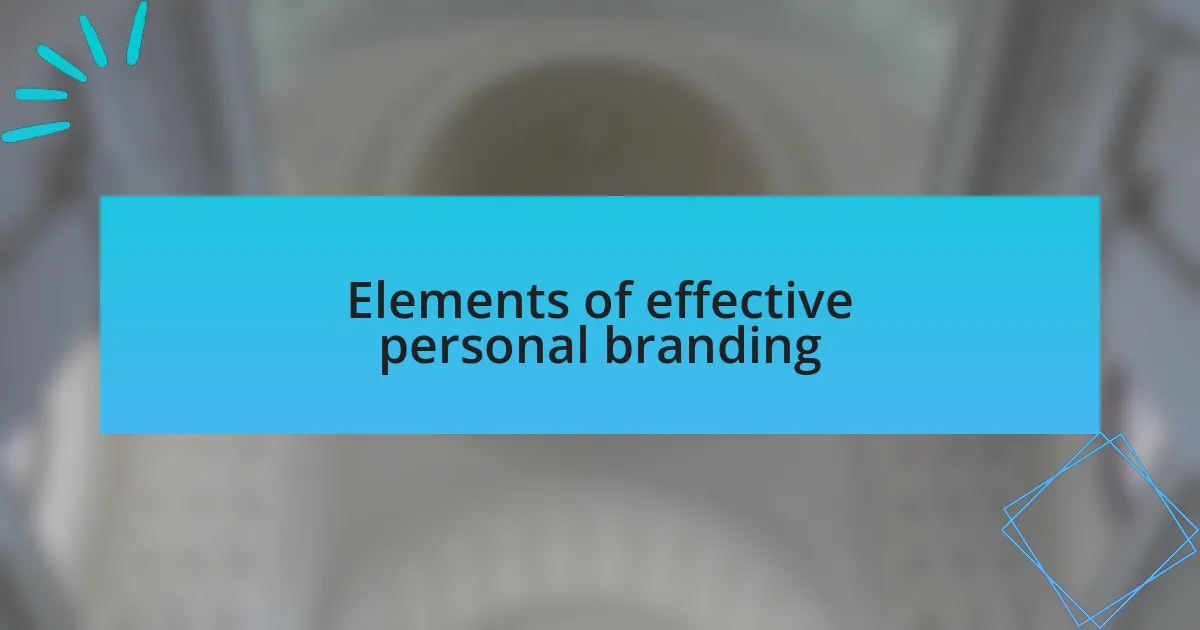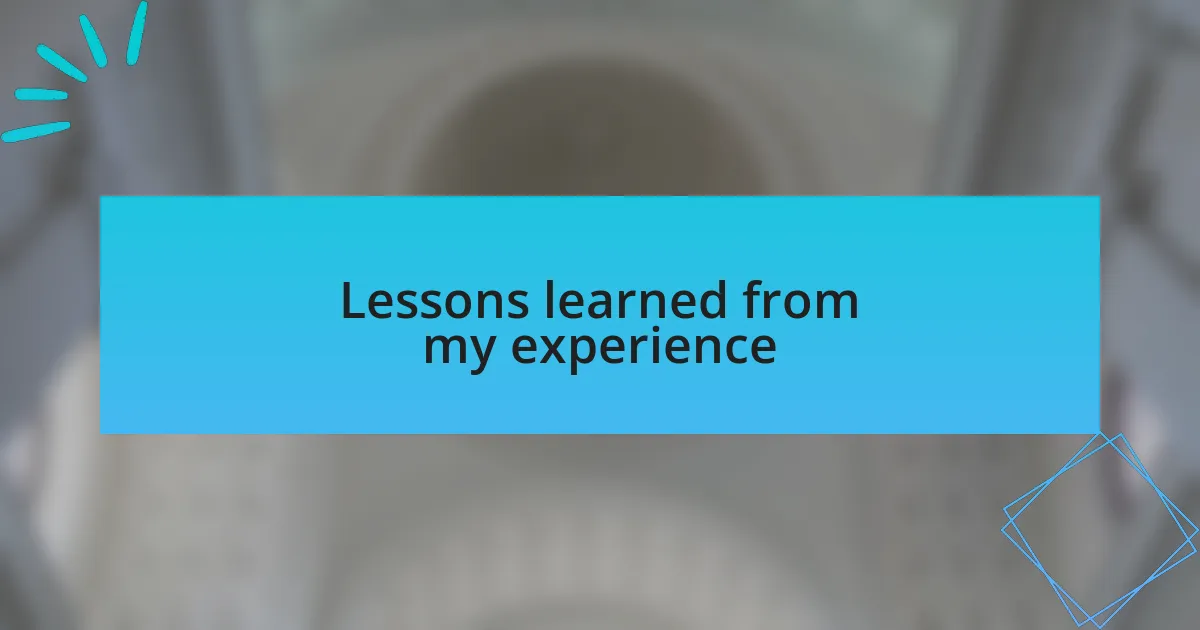Key takeaways:
- Personal branding is about authenticity and crafting a narrative that resonates with others.
- A clear and consistent personal brand shapes professional identity and builds confidence.
- Vulnerability and personal storytelling enhance connection and engagement with the audience.
- Soliciting feedback is crucial for growth and refinement in personal branding efforts.

Understanding personal branding
When I first started understanding personal branding, it felt overwhelming. What exactly defines my brand? I remember sitting in a coffee shop, pondering how to convey my unique story and values. The more I reflected, the clearer it became: personal branding is about authenticity and how I choose to communicate who I am.
It’s intriguing how others perceive us based on our online presence and interactions. I realized that every post, every comment, and even the visuals I shared contributed to my personal narrative. Isn’t it fascinating how a simple tweet can reflect my personality and expertise? This realization pushed me to curate my online footprints more thoughtfully.
Over time, I found that effective personal branding isn’t just self-promotion; it involves building a connection with others. I once shared a project that deeply resonated with me, and the overwhelming response taught me that vulnerability could be a powerful branding tool. Have you considered how your experiences and passions could elevate your brand? The journey of defining and refining my personal brand has been transformative, revealing the strength of genuine connection in a crowded digital space.

Importance of personal branding
Establishing a personal brand is crucial in today’s competitive landscape. I remember when I first attended a networking event; the connections I made were significantly influenced by how others perceived my brand. It’s remarkable how a clear, consistent message can draw people in or push them away. Have you ever considered how someone’s first impression of you could stem from just a handshake and your online profile?
Personal branding not only sets the foundation for how others see me, but it also shapes my own professional identity. I once struggled with imposter syndrome, doubting my abilities even when my work spoke for itself. I found that by articulating my strengths and sharing my journey, I could build confidence and create an authentic narrative. Isn’t it empowering to realize that we control our story?
Furthermore, having a strong personal brand can open doors and lead to unexpected opportunities. I recall a time when a brand I admired reached out for collaboration, recognizing my unique approach in a crowded industry. This experience taught me that being true to my brand not only attracts like-minded individuals but also positions me as a thought leader. What remarkable connections might you be missing out on by not fully embracing your personal brand?

Elements of effective personal branding
One of the core elements of effective personal branding is authenticity. When I decided to showcase my true self online, I noticed a remarkable shift in engagement. People resonated with my honest experiences rather than a polished facade. Have you ever noticed how authenticity fosters trust? It creates a connection that’s hard to replicate, making it easier for others to relate to you.
Another key component is consistency. Maintaining a cohesive message across all platforms is essential for building recognition. In my journey, I learned that posting irregularly or sharing mixed messages can confuse my audience. It’s like speaking a different language every time I meet someone new. Wouldn’t it feel frustrating if people didn’t know what to expect from you?
Lastly, clarity in purpose strengthens one’s personal brand. Knowing what I stood for and communicating it clearly has been a game-changer in my professional life. I usually take time to reflect on my values and goals, and this clarity helps me align my actions with my message. I often ask myself, “What do I want to be known for?” The answers guide my branding efforts, steering me toward opportunities that truly resonate with my vision.

Lessons learned from my experience
One major lesson I’ve learned is the importance of embracing vulnerability. In sharing my challenges, I found that people connected with me on a deeper level. I recall a time I posted about a project that didn’t go as planned. Instead of criticism, I received a wave of support and even suggestions that helped me move forward. Isn’t it fascinating how opening up can transform a connection?
Another insight revolves around the significance of personal storytelling. I’ve discovered that weaving personal experiences into my brand makes my message more relatable. There was a period when I focused solely on my professional achievements, but it wasn’t until I started sharing my journey—like my struggles in balancing work and personal life—that my audience truly began to engage. Do you think people are drawn more to facts or narratives? For me, the narrative always wins.
Finally, I realized that feedback is invaluable for growth. In my early attempts at establishing my personal brand, I hesitated to solicit opinions. But once I began asking for constructive criticism, my branding took a leap forward. I vividly remember a conversation with a mentor who pointed out areas for improvement. That insight sparked new ideas that reshaped my approach. How can you expect to grow if you’re not willing to listen?